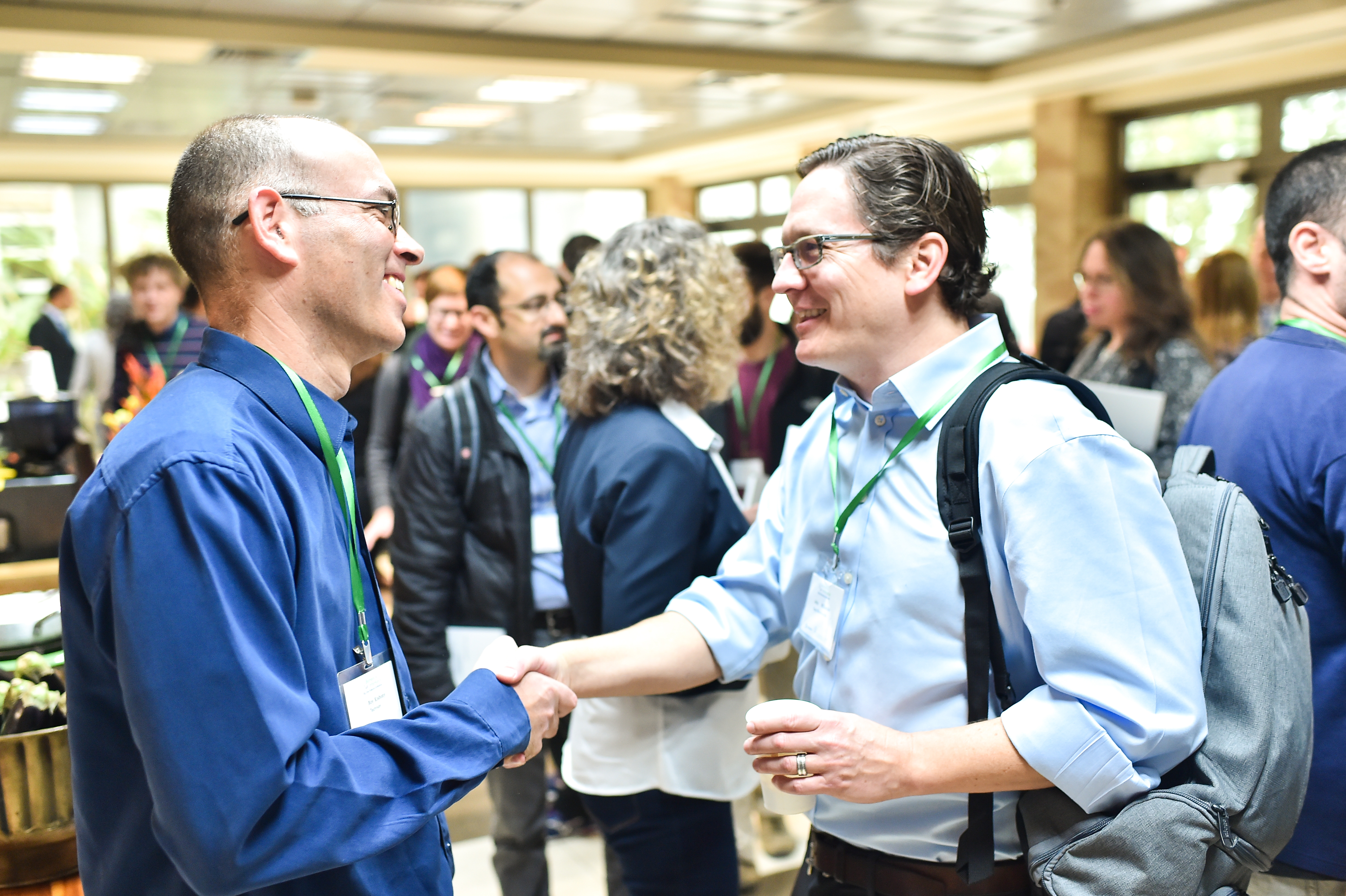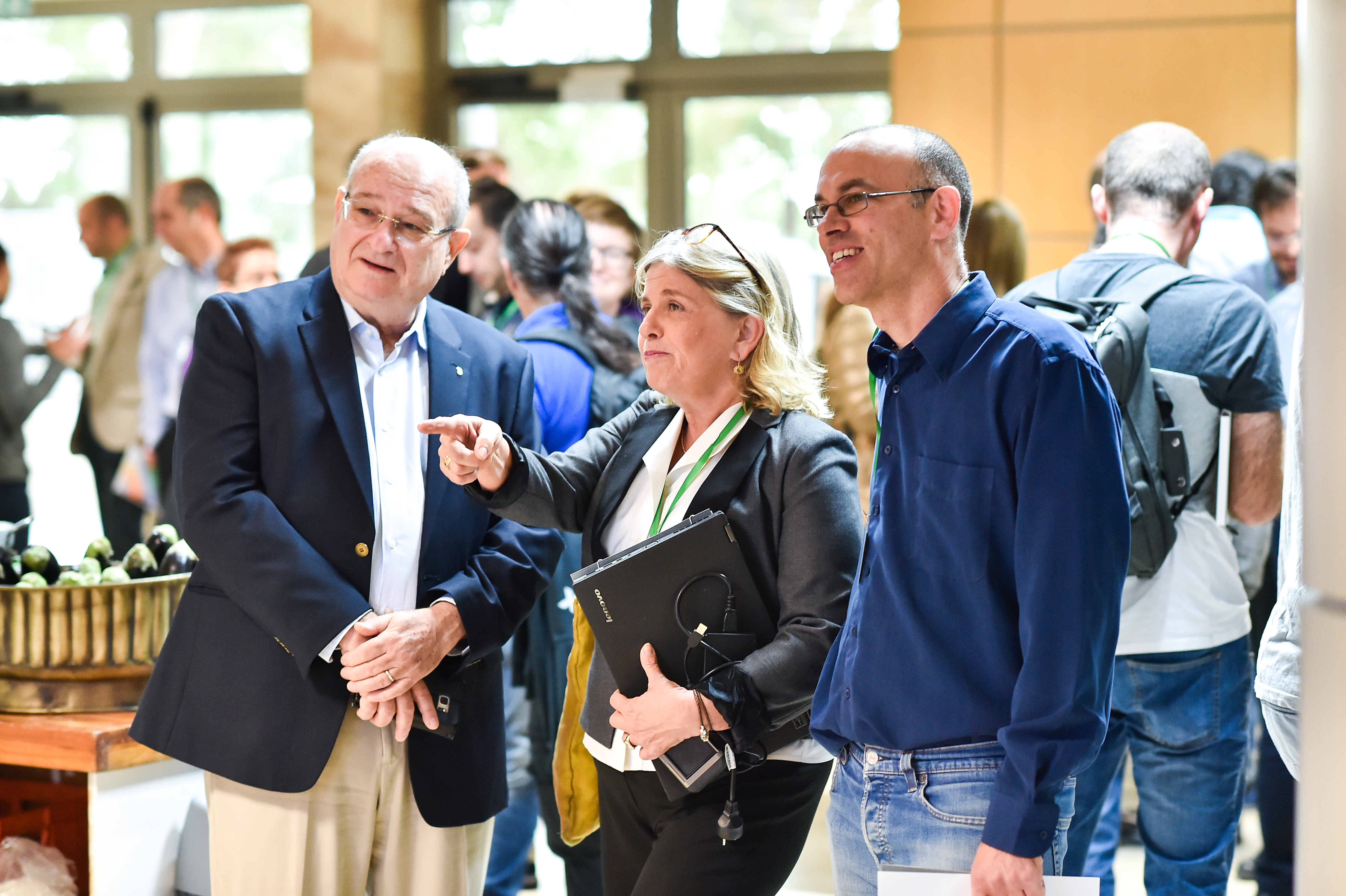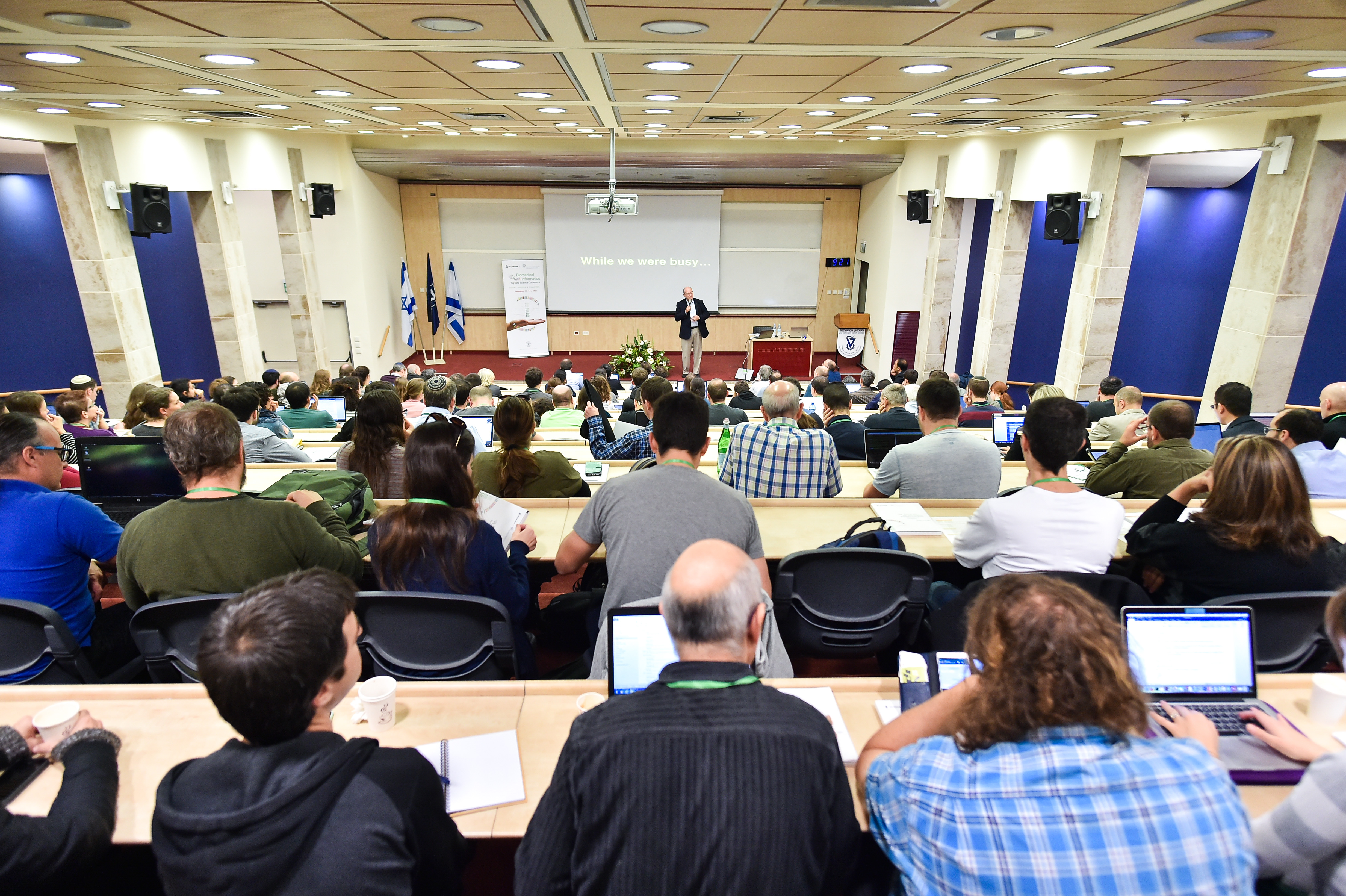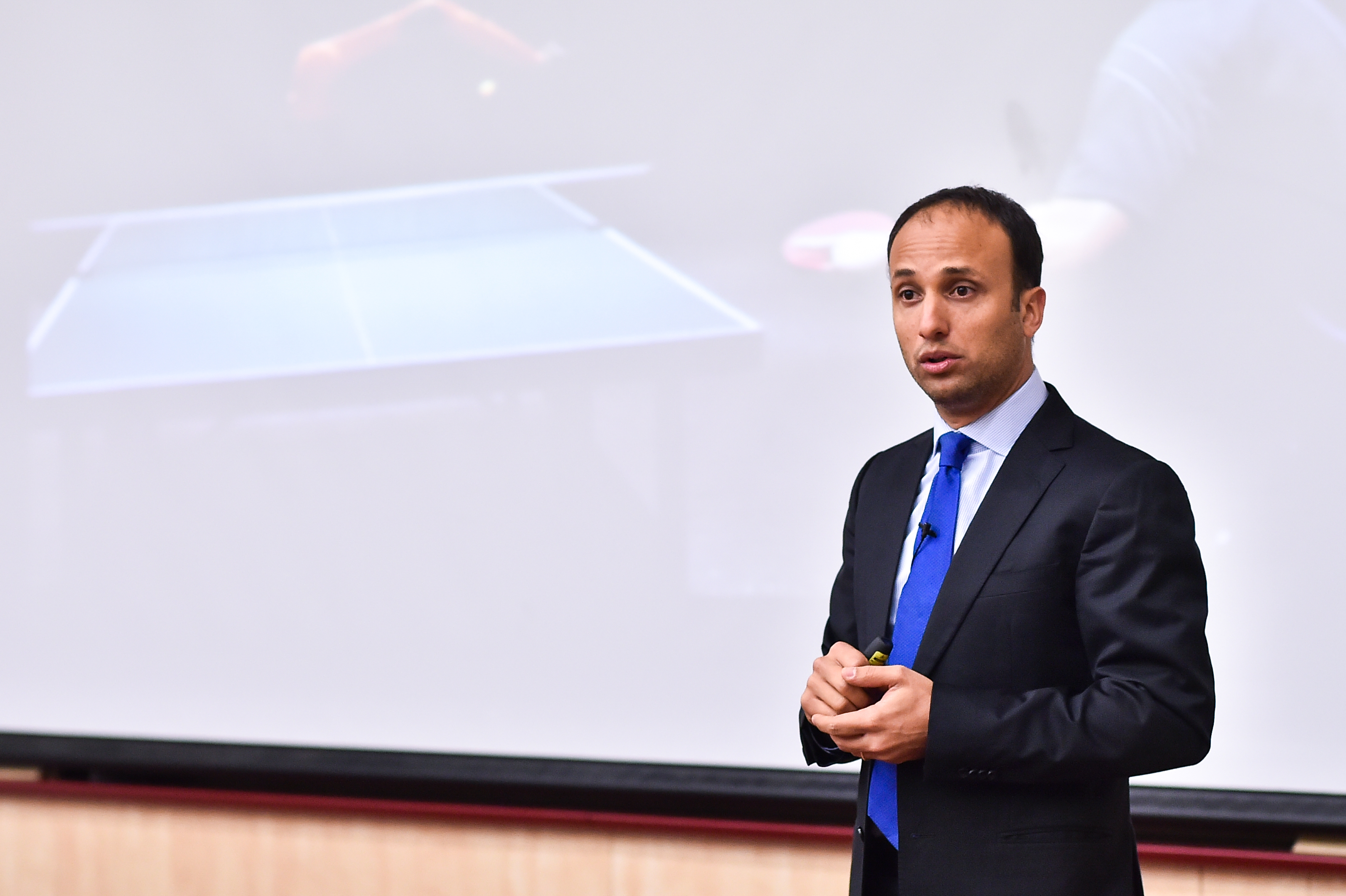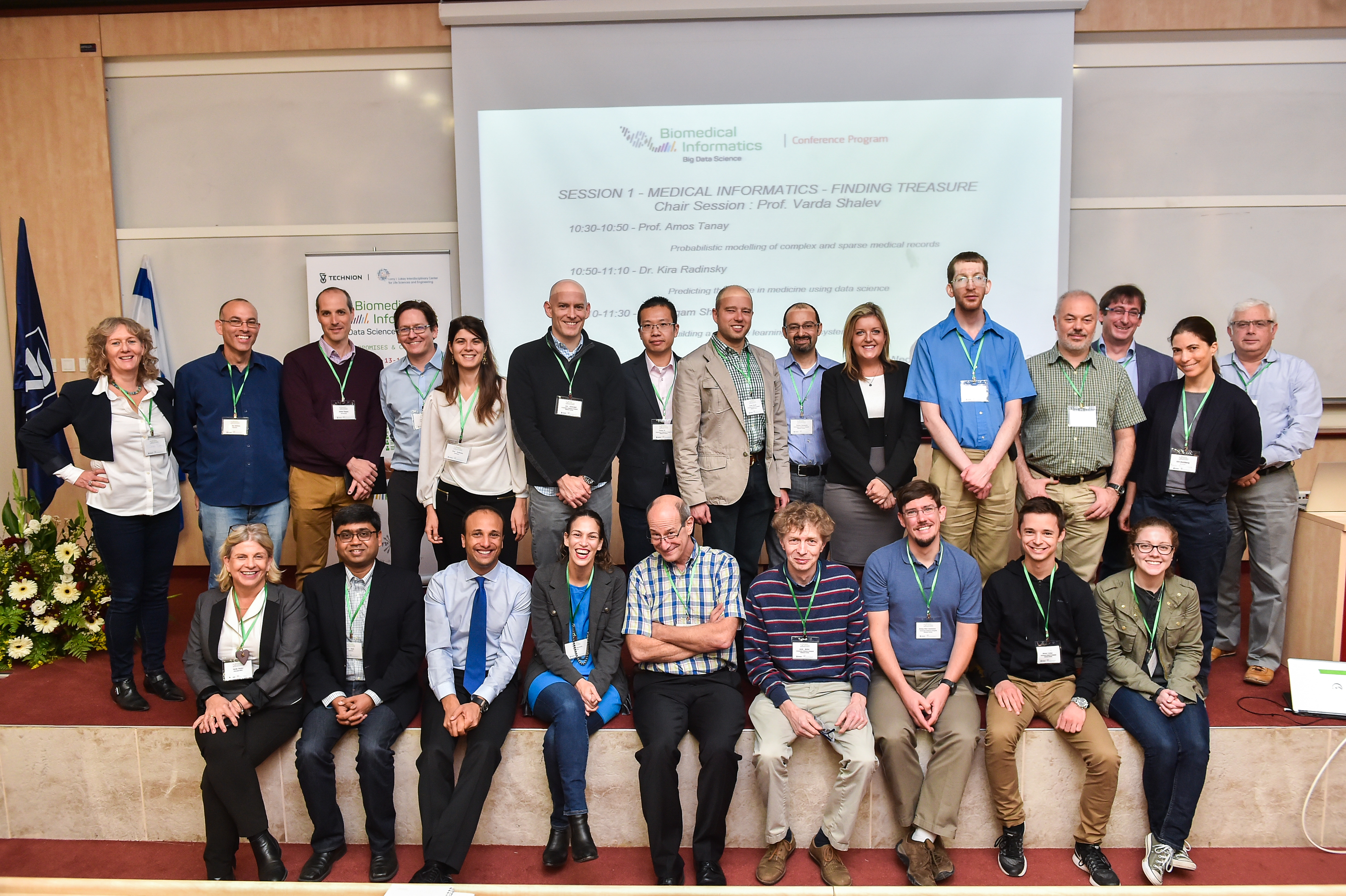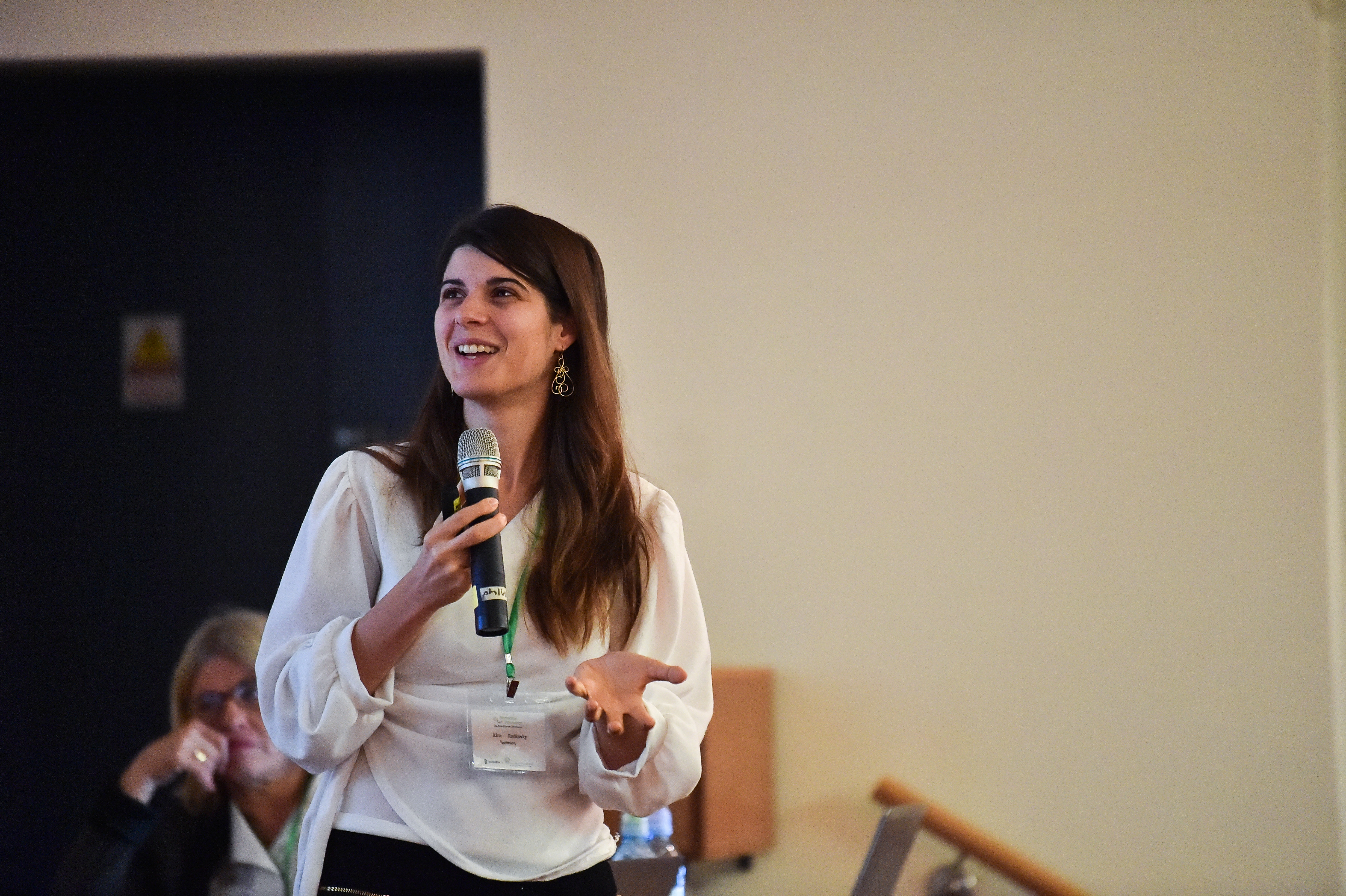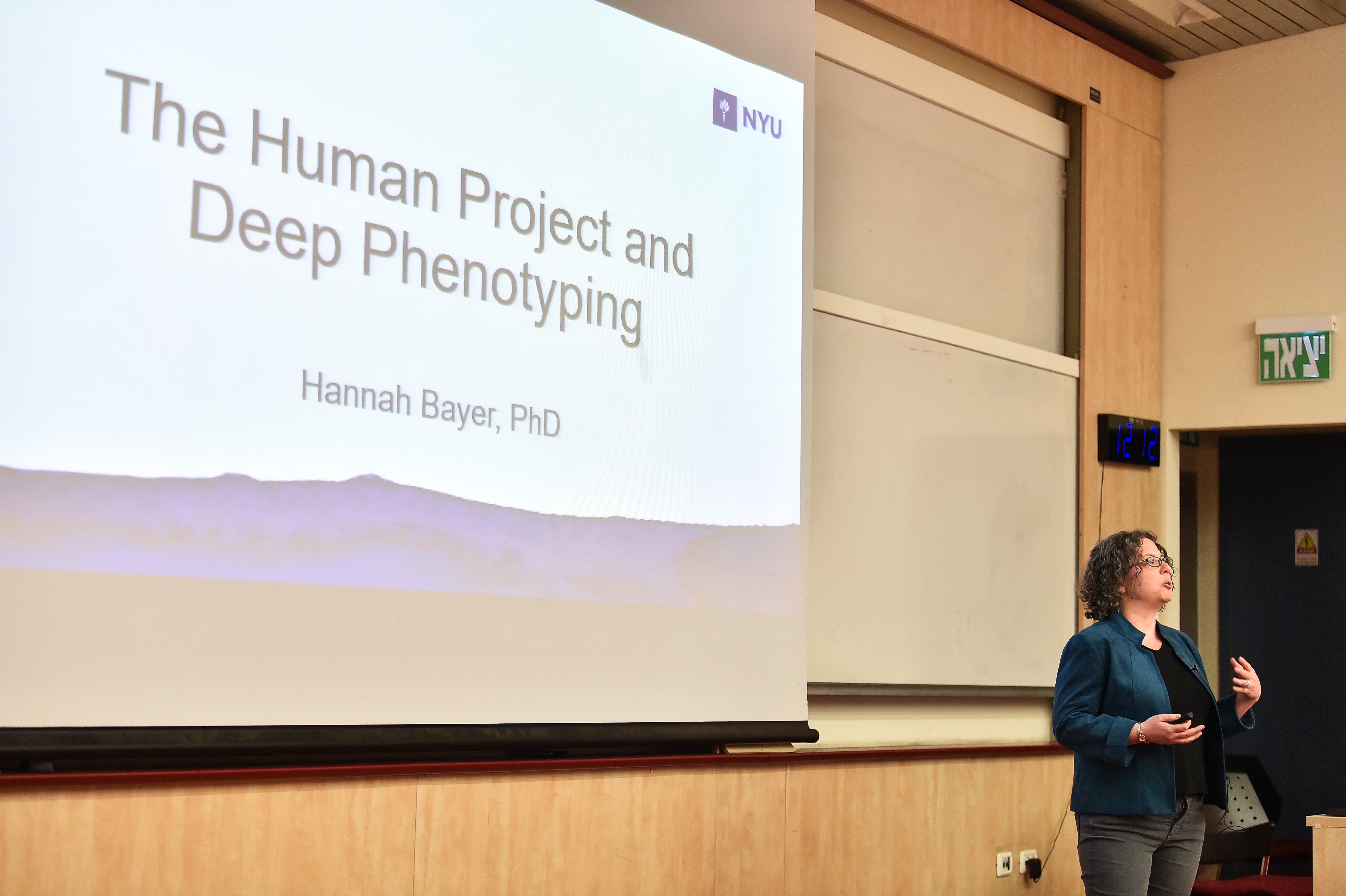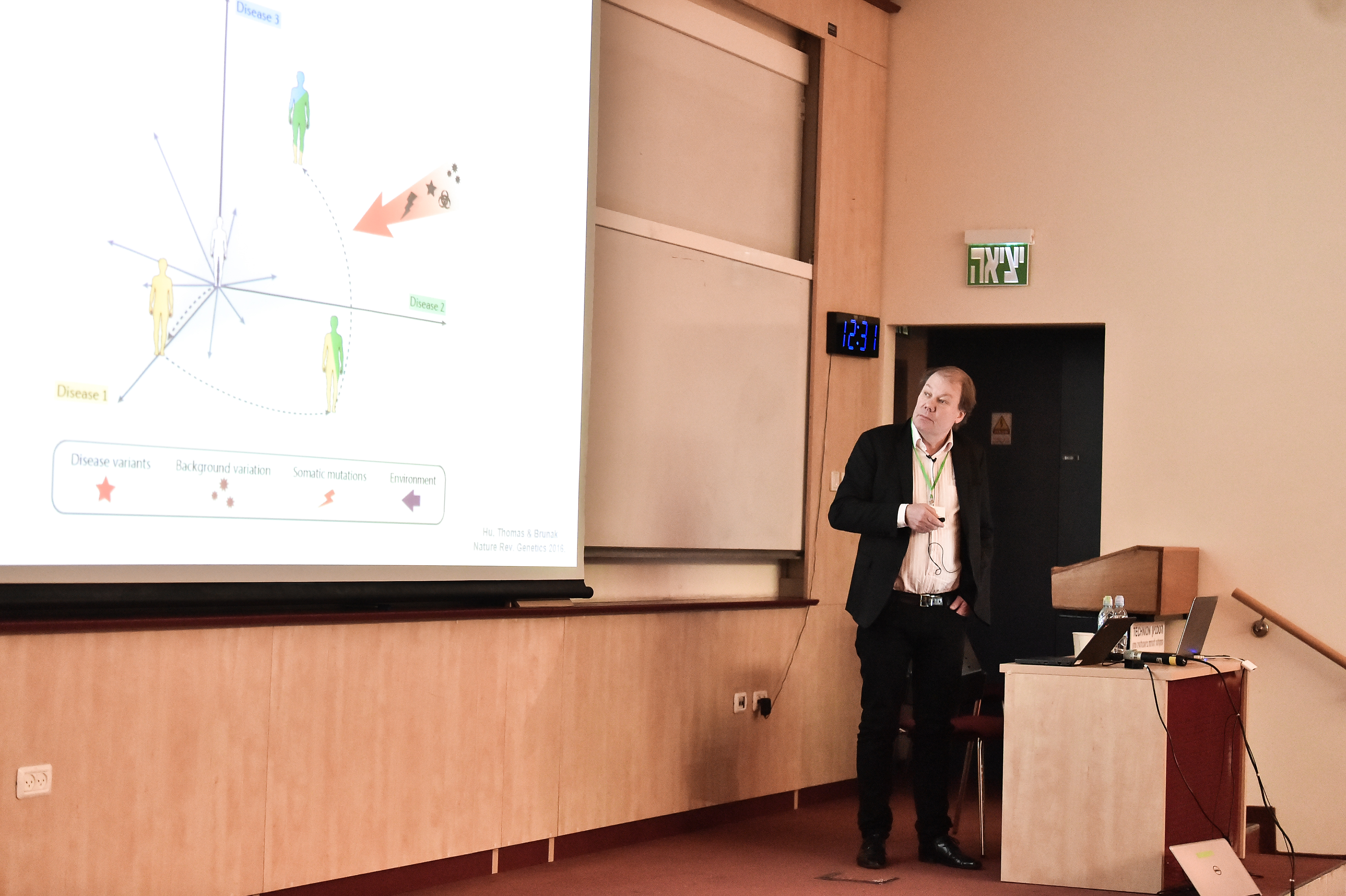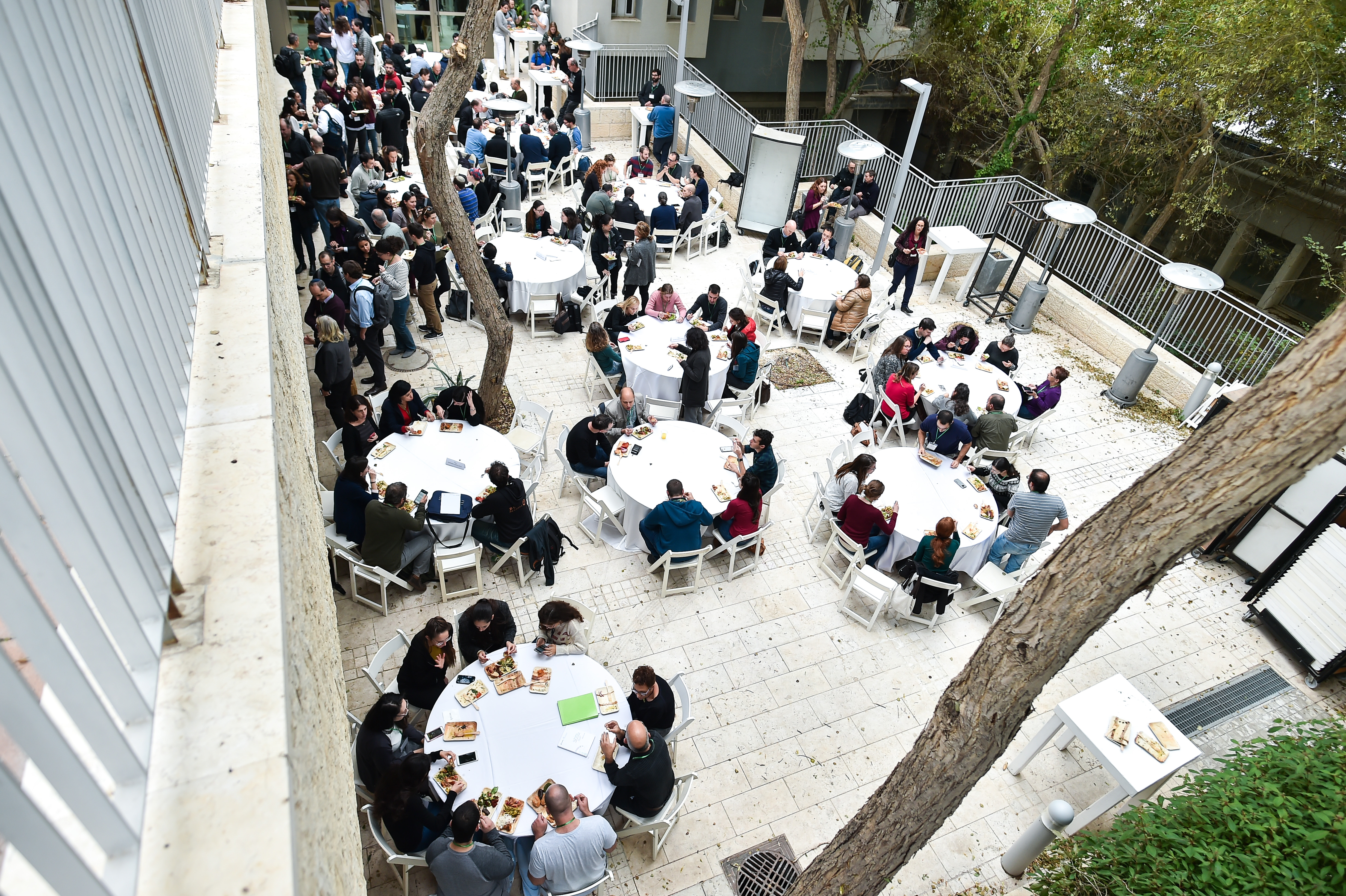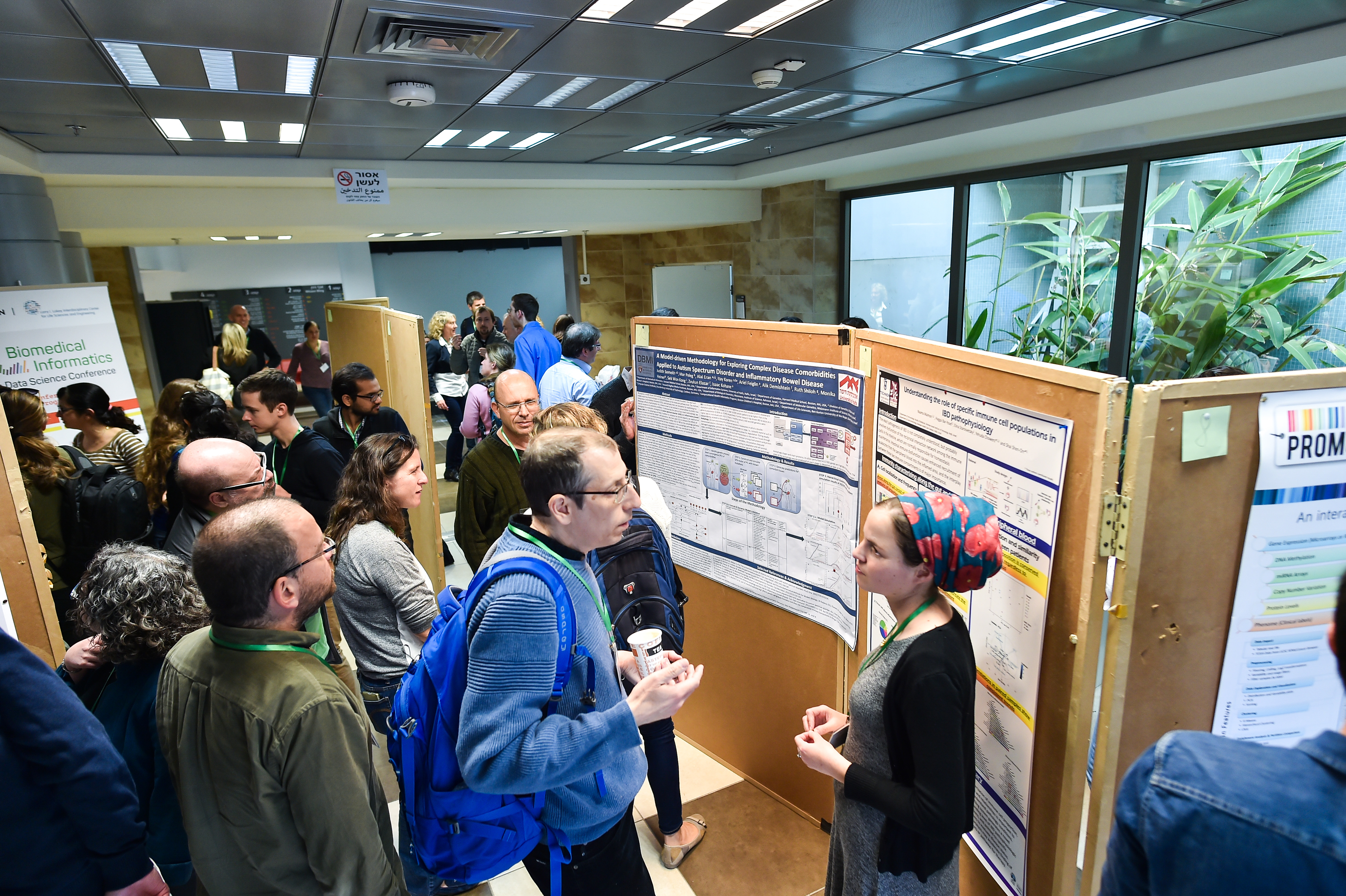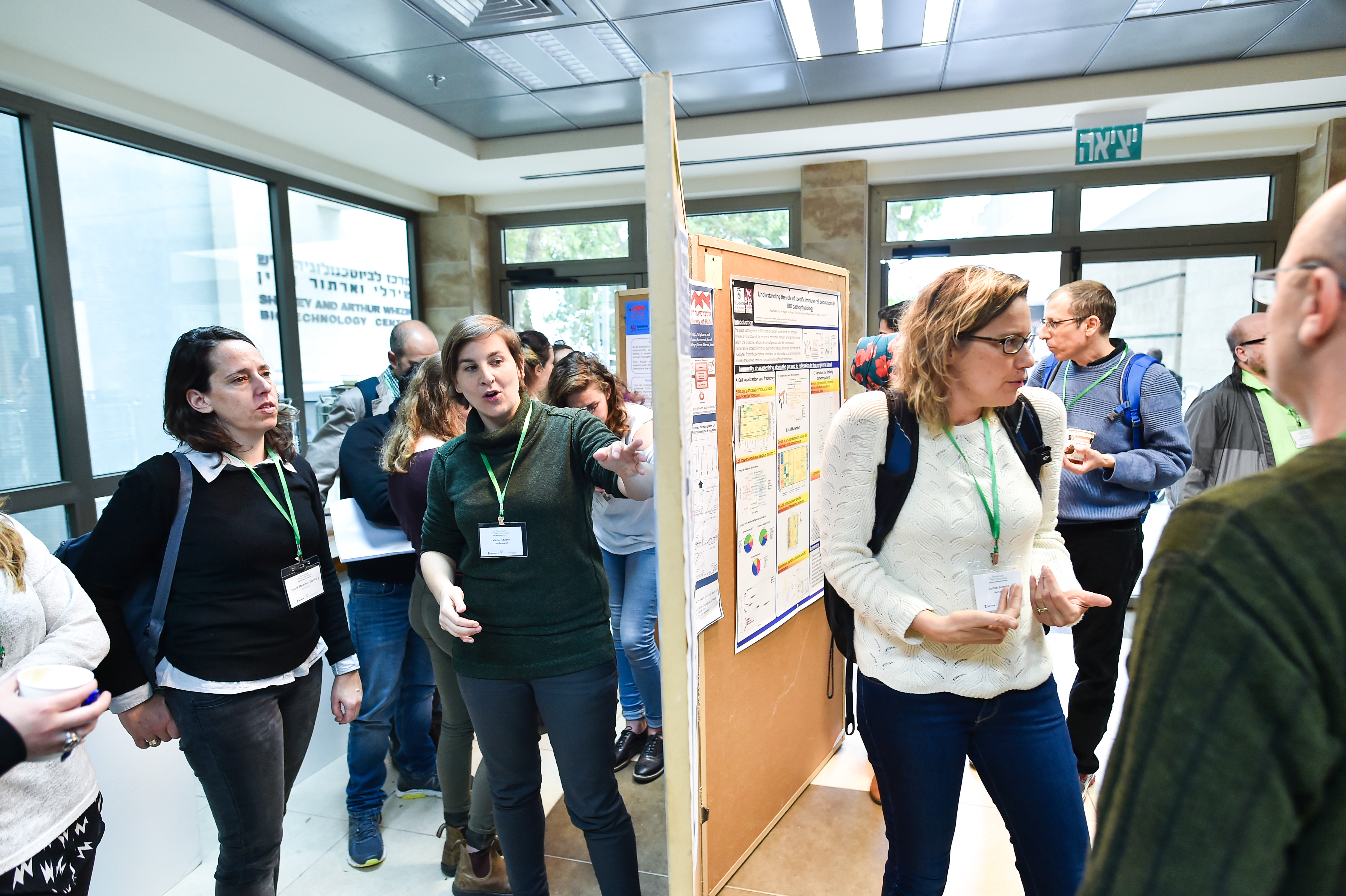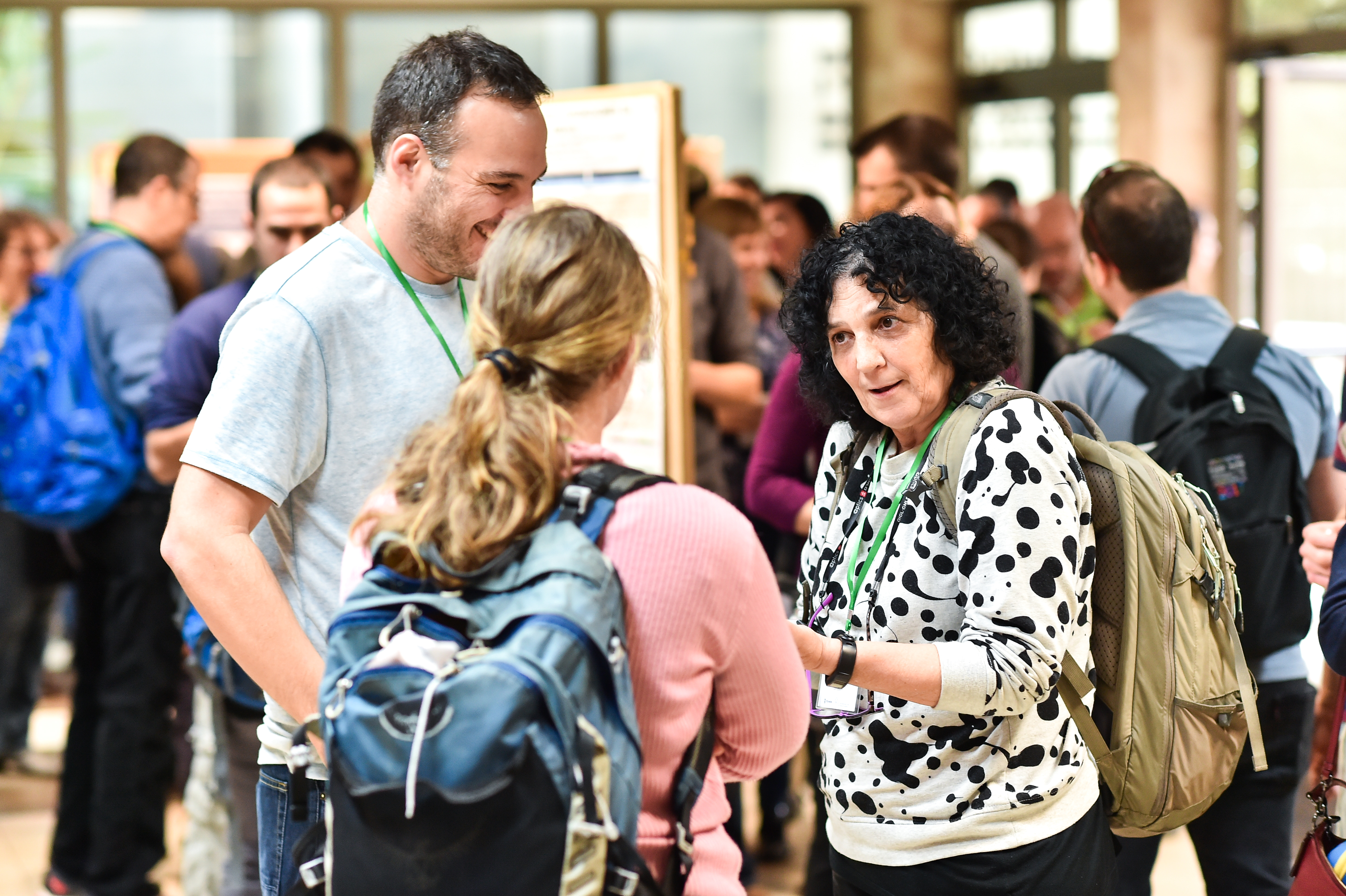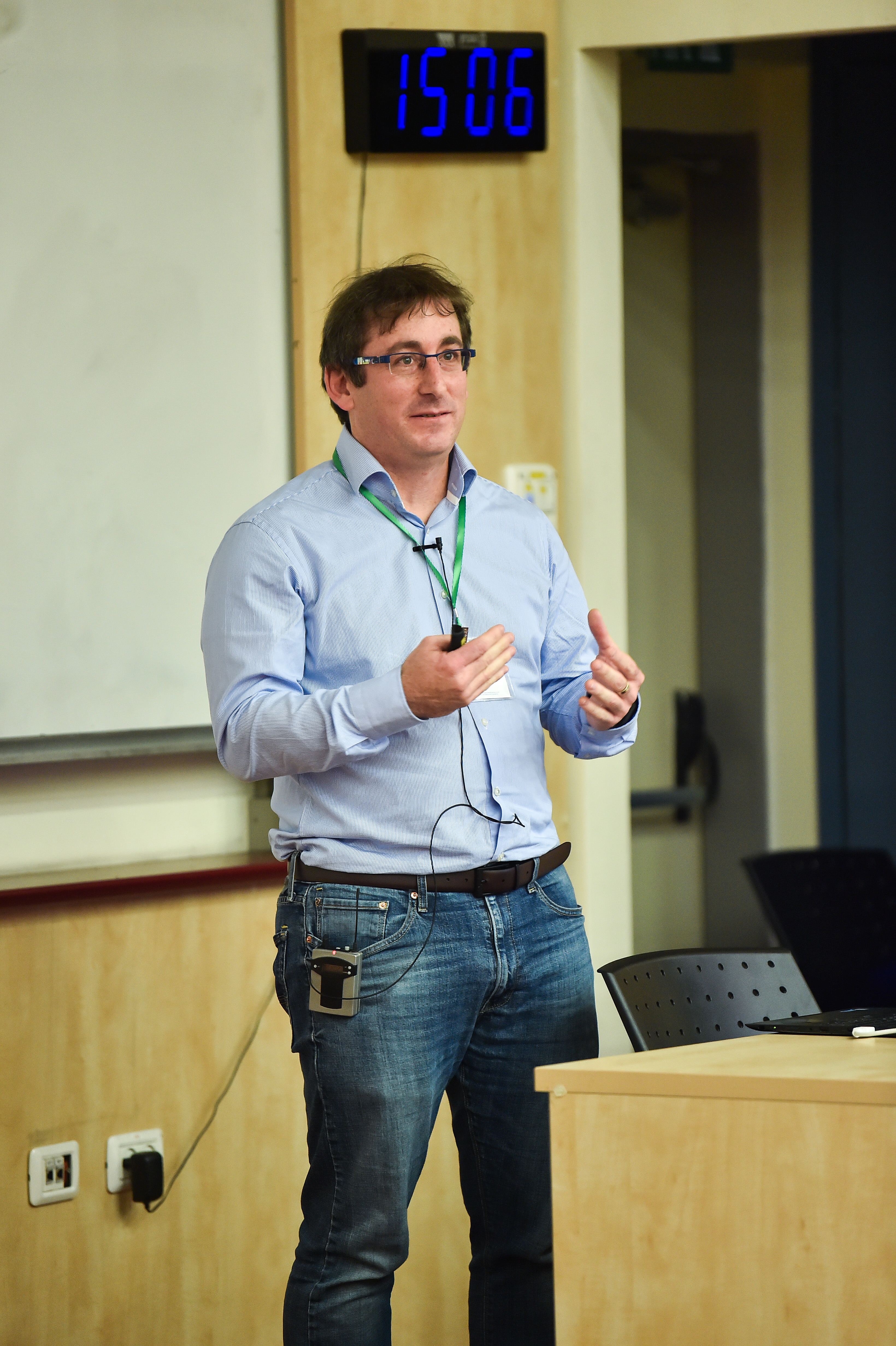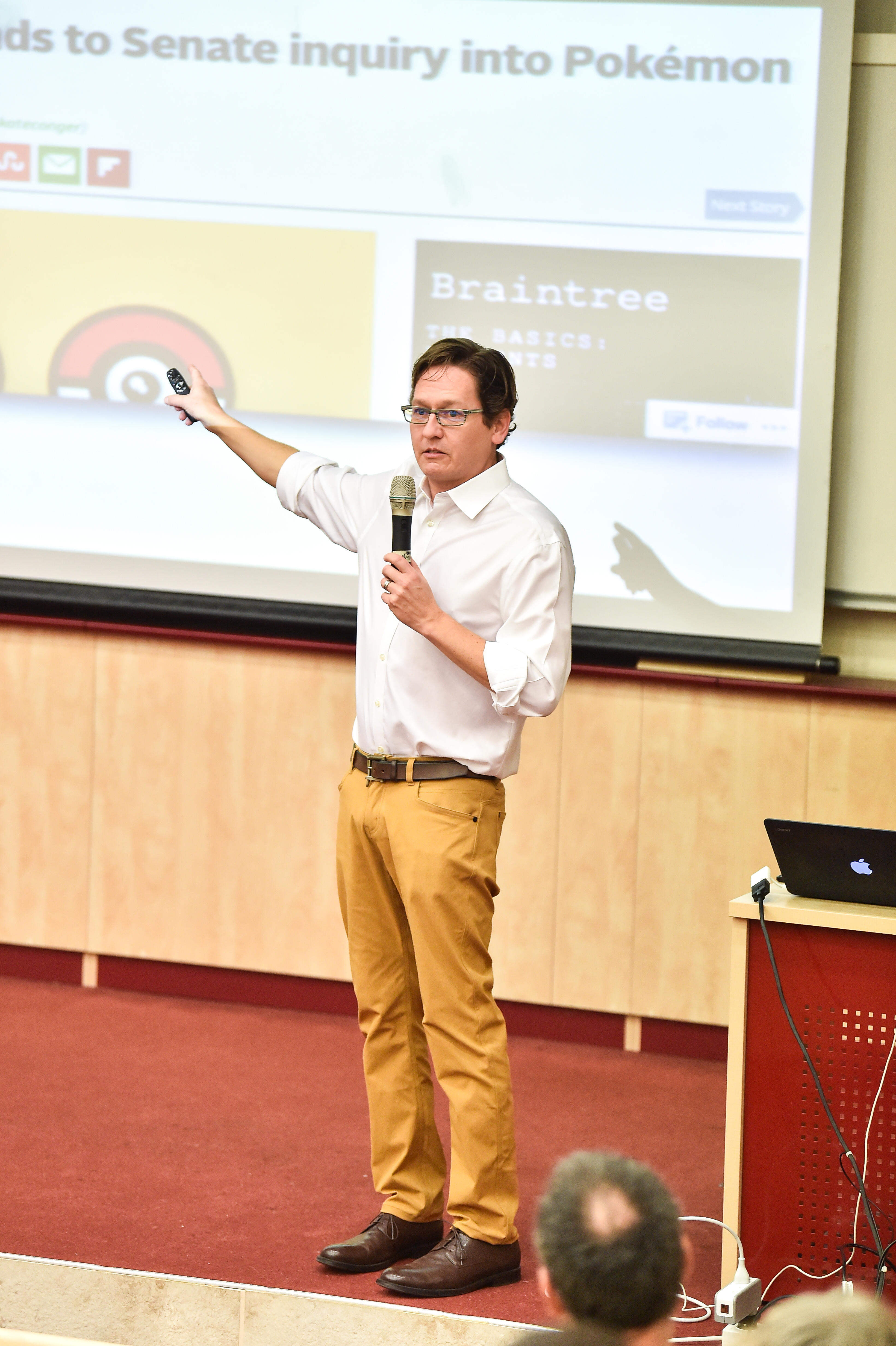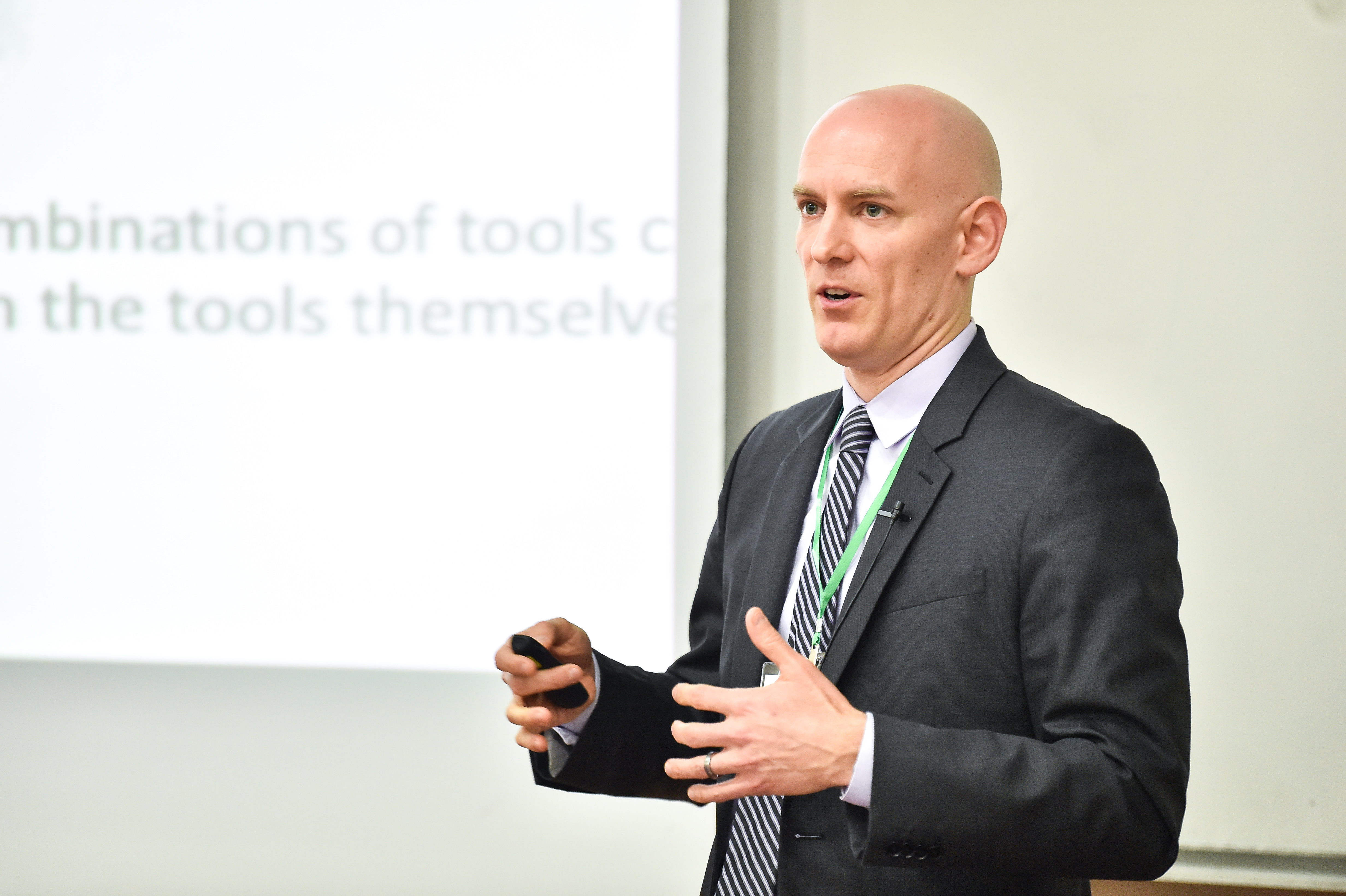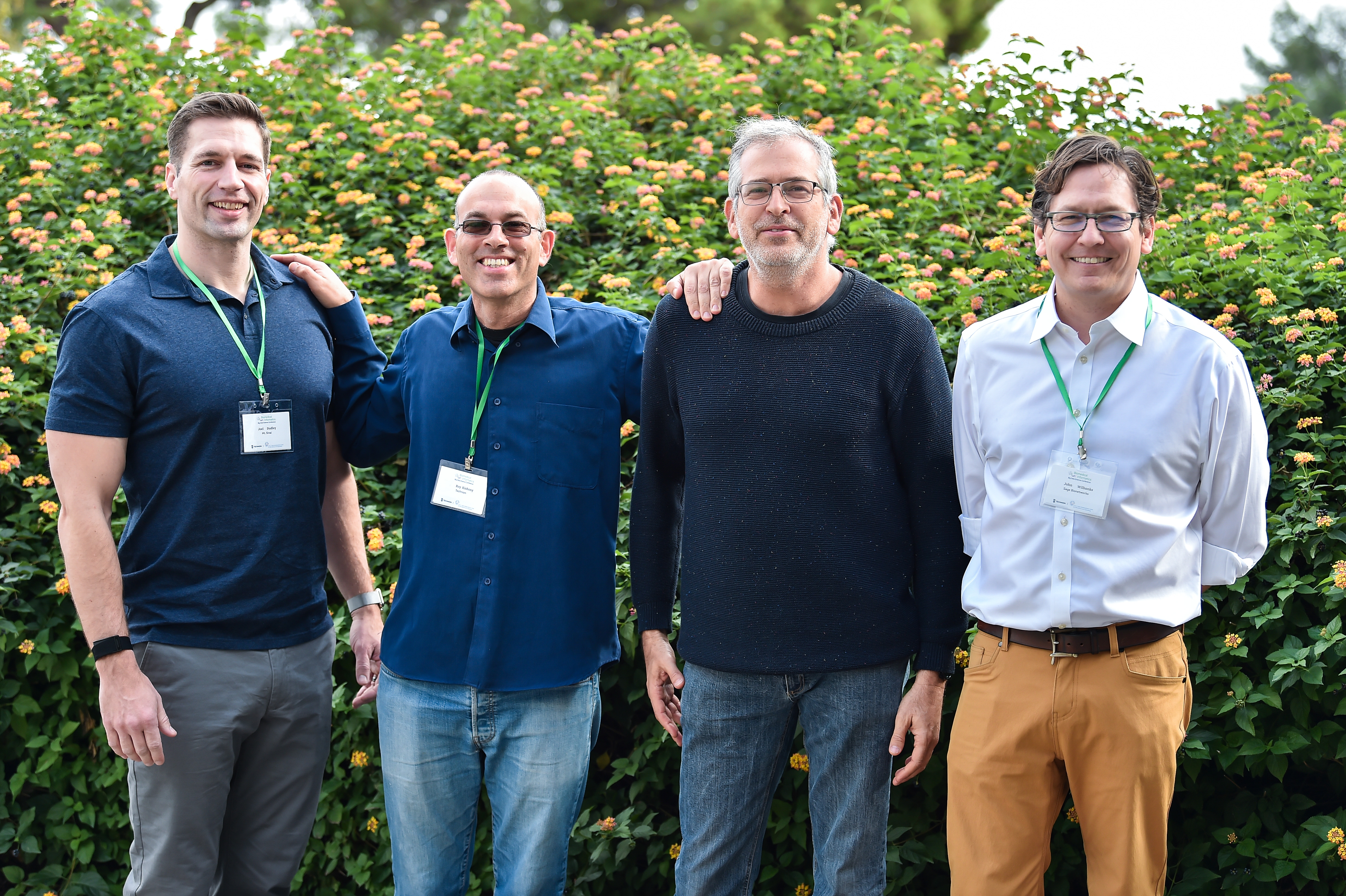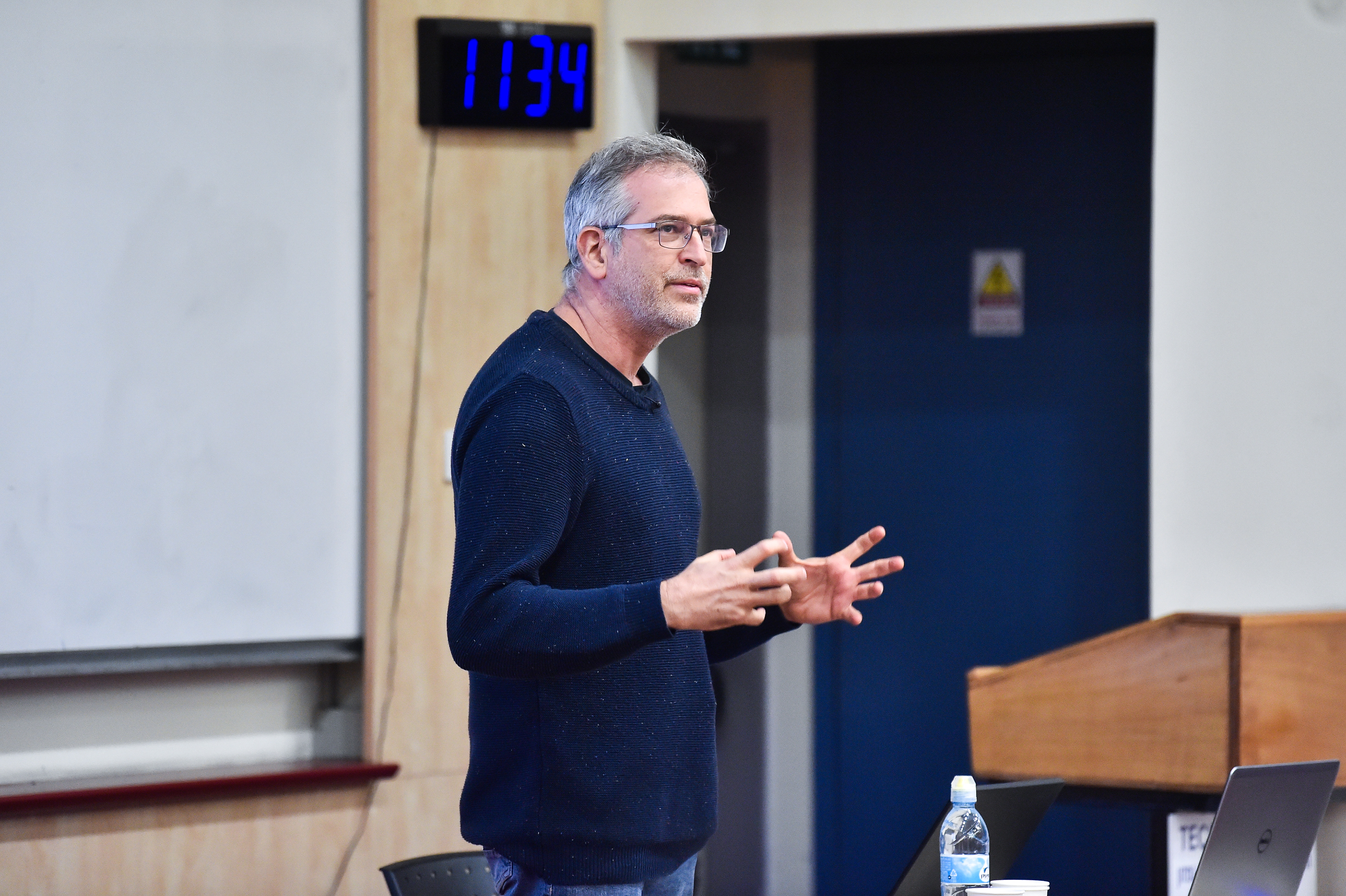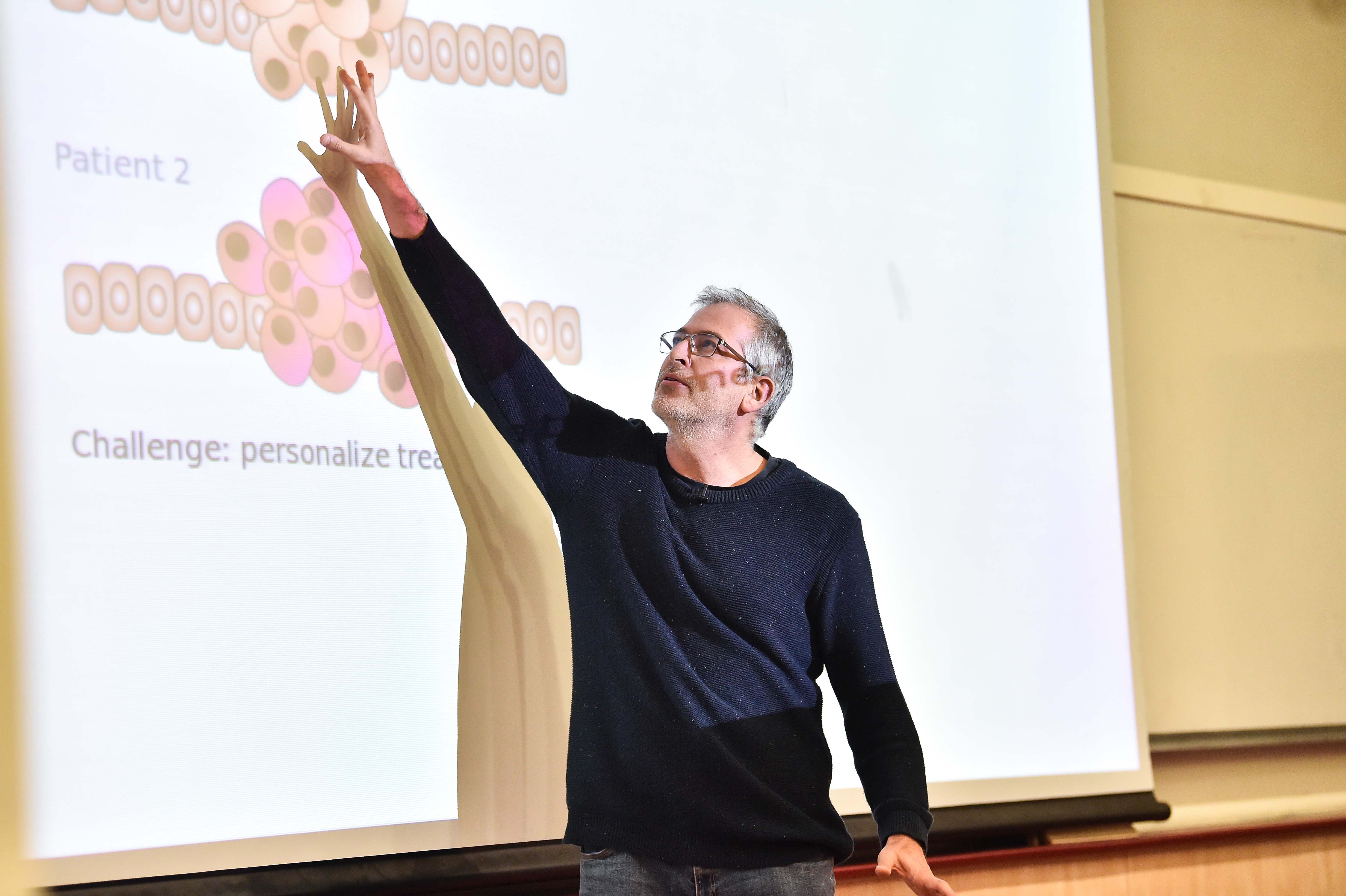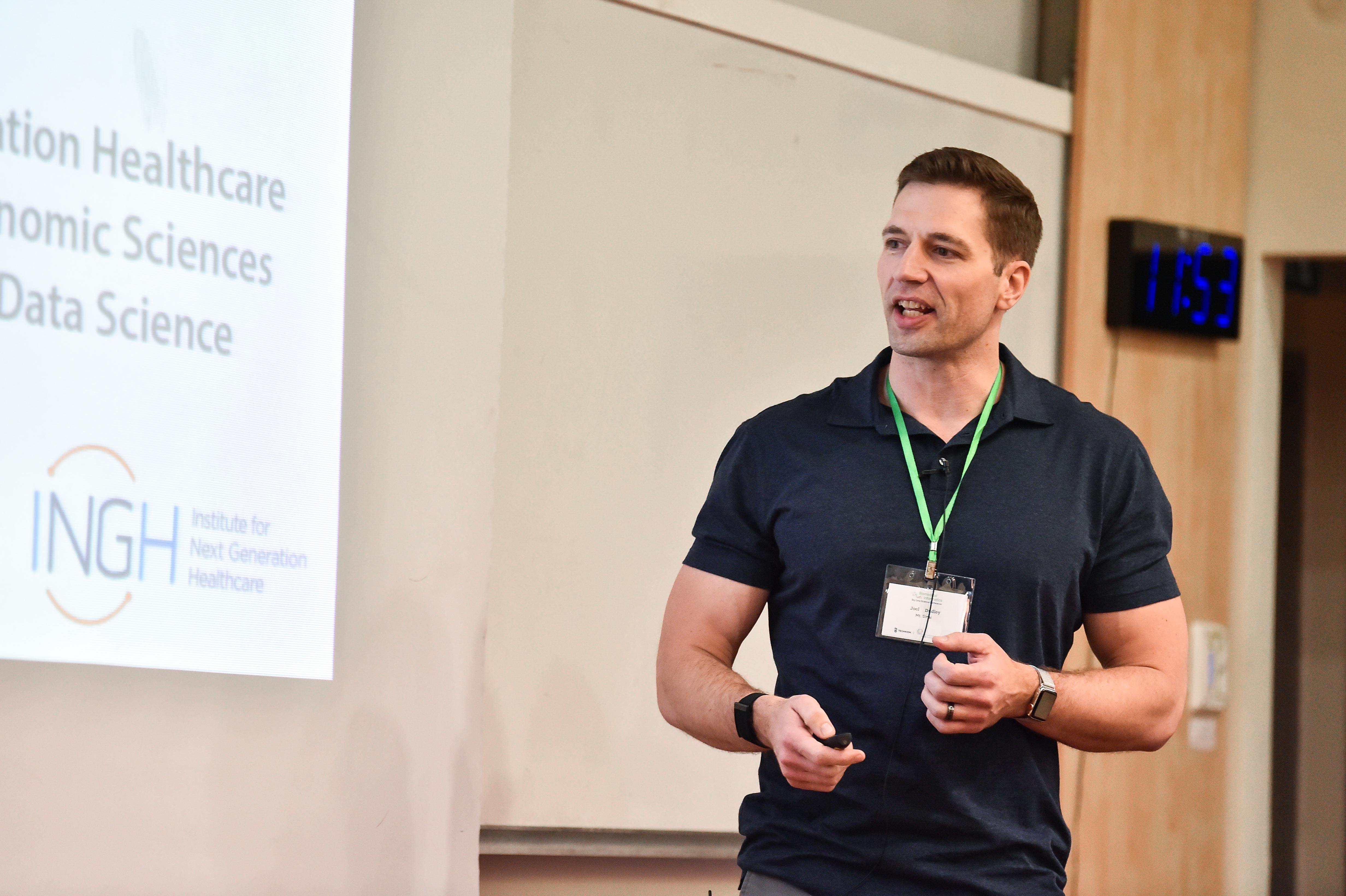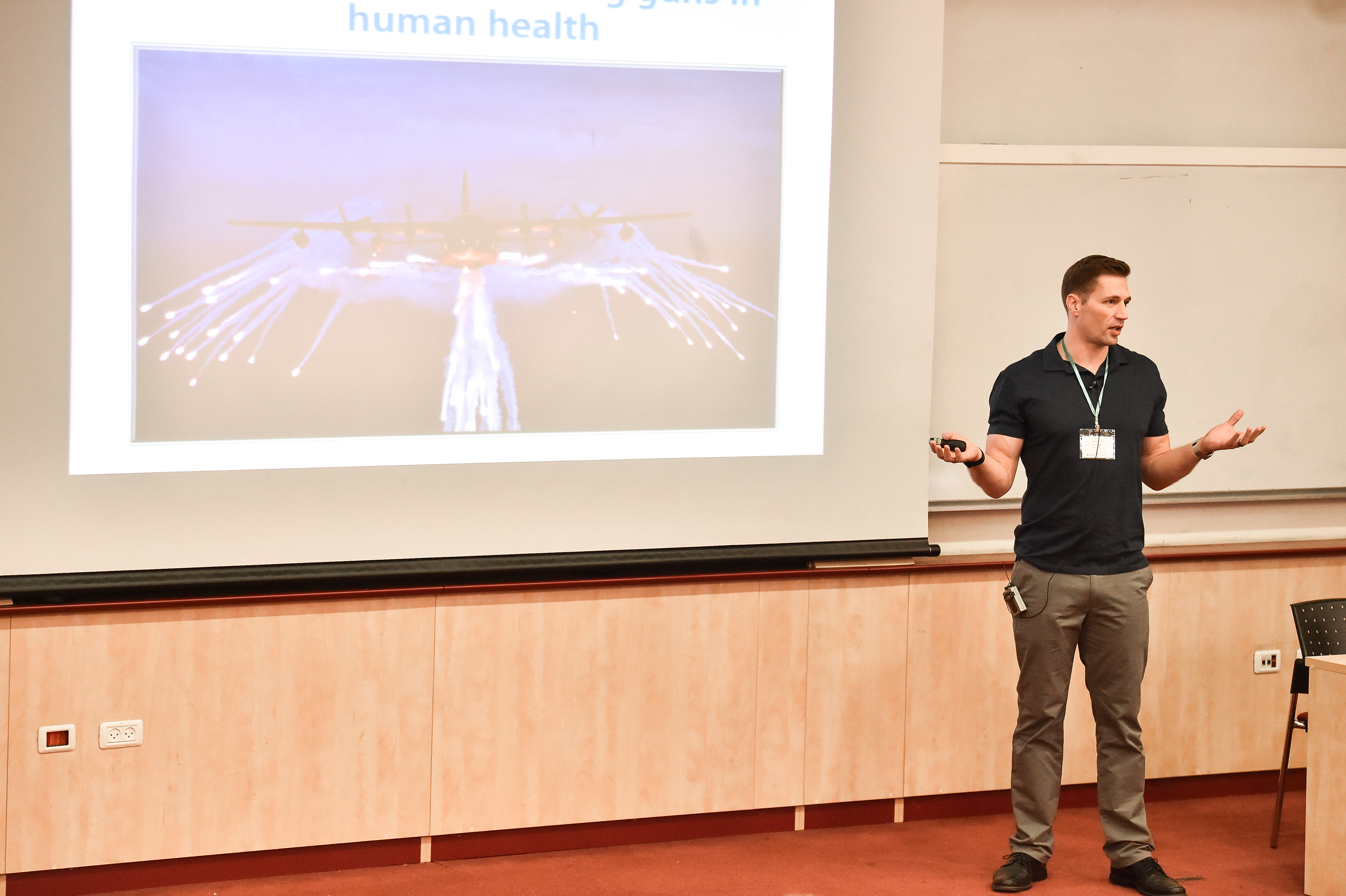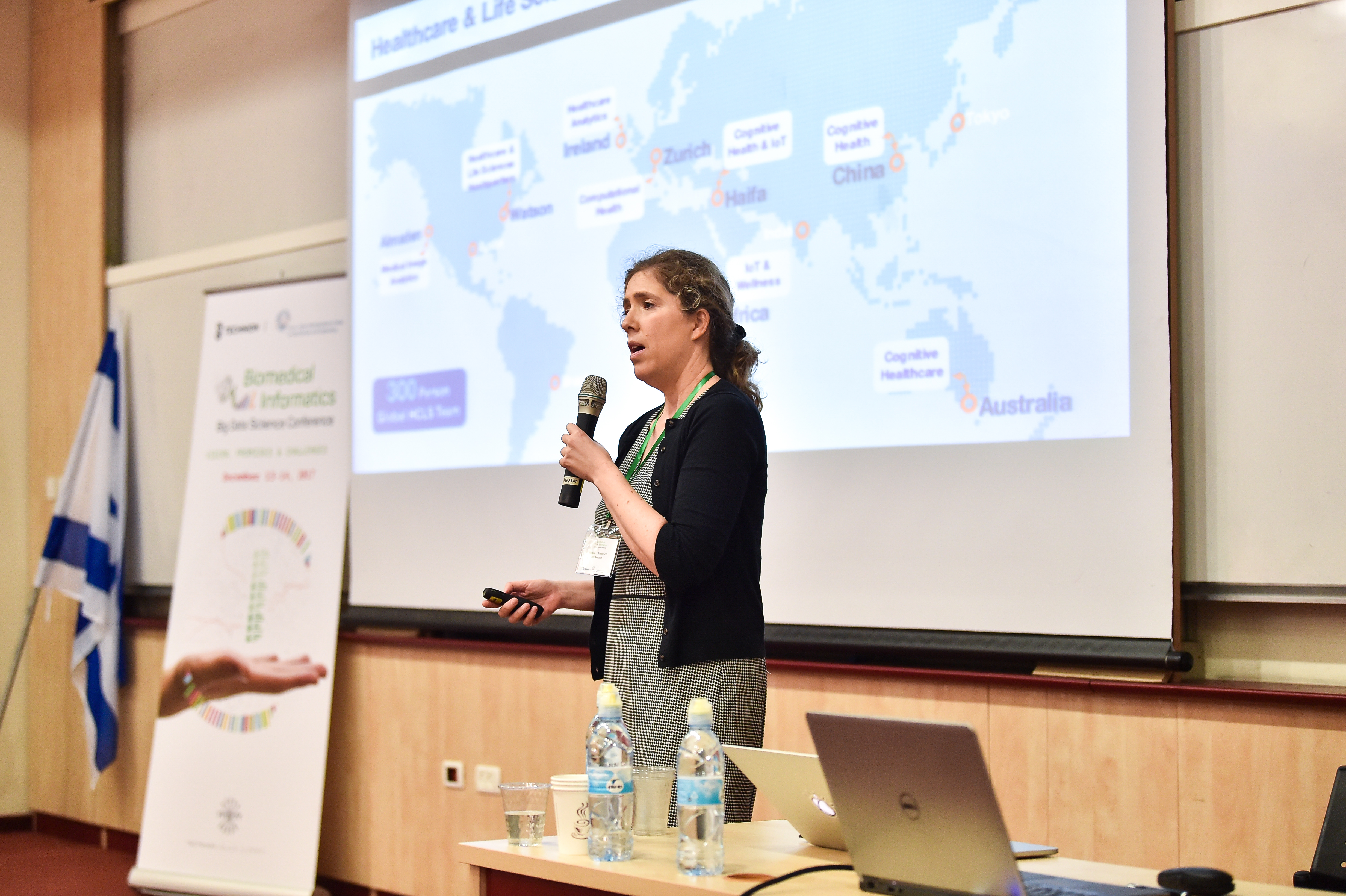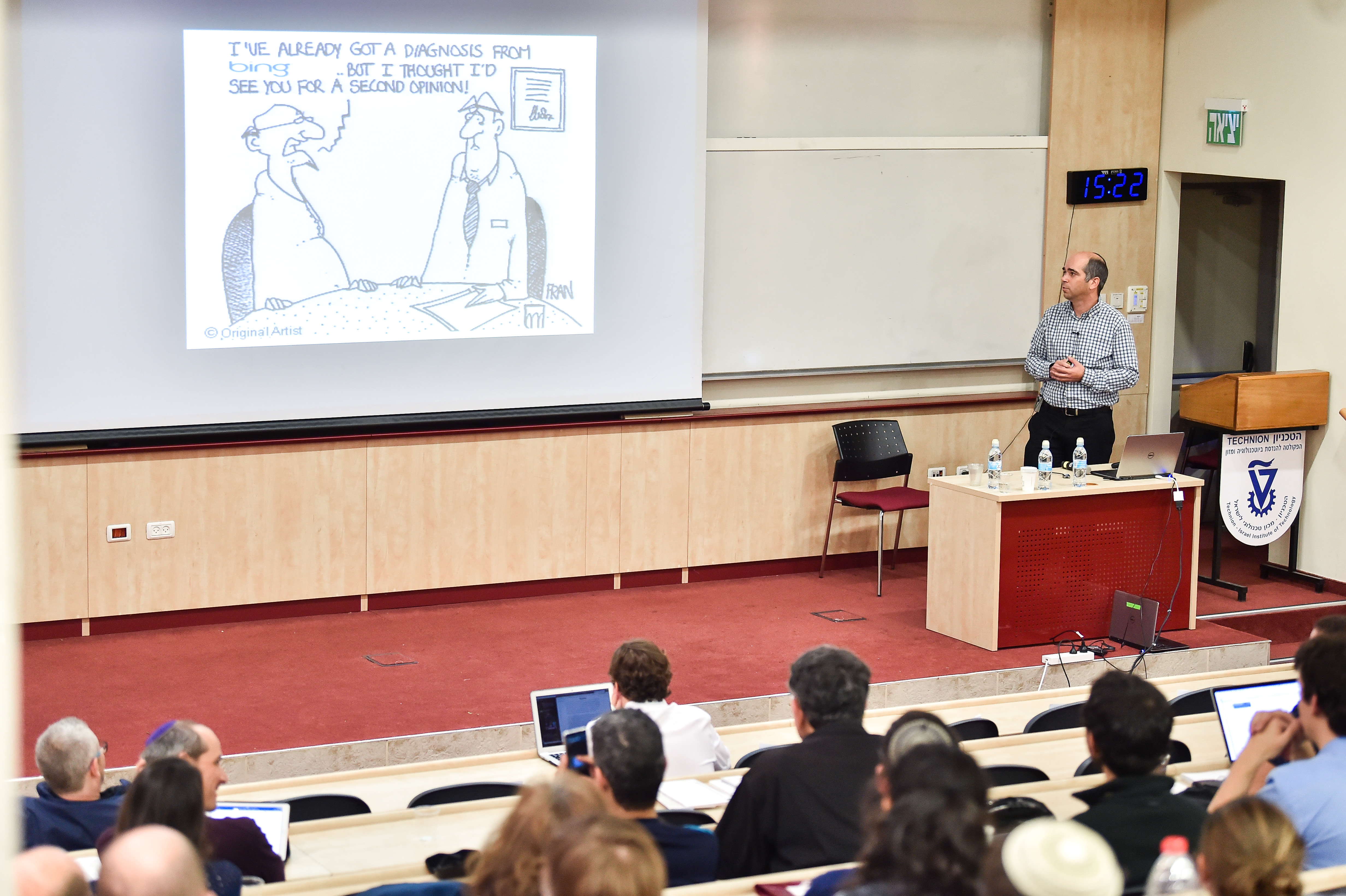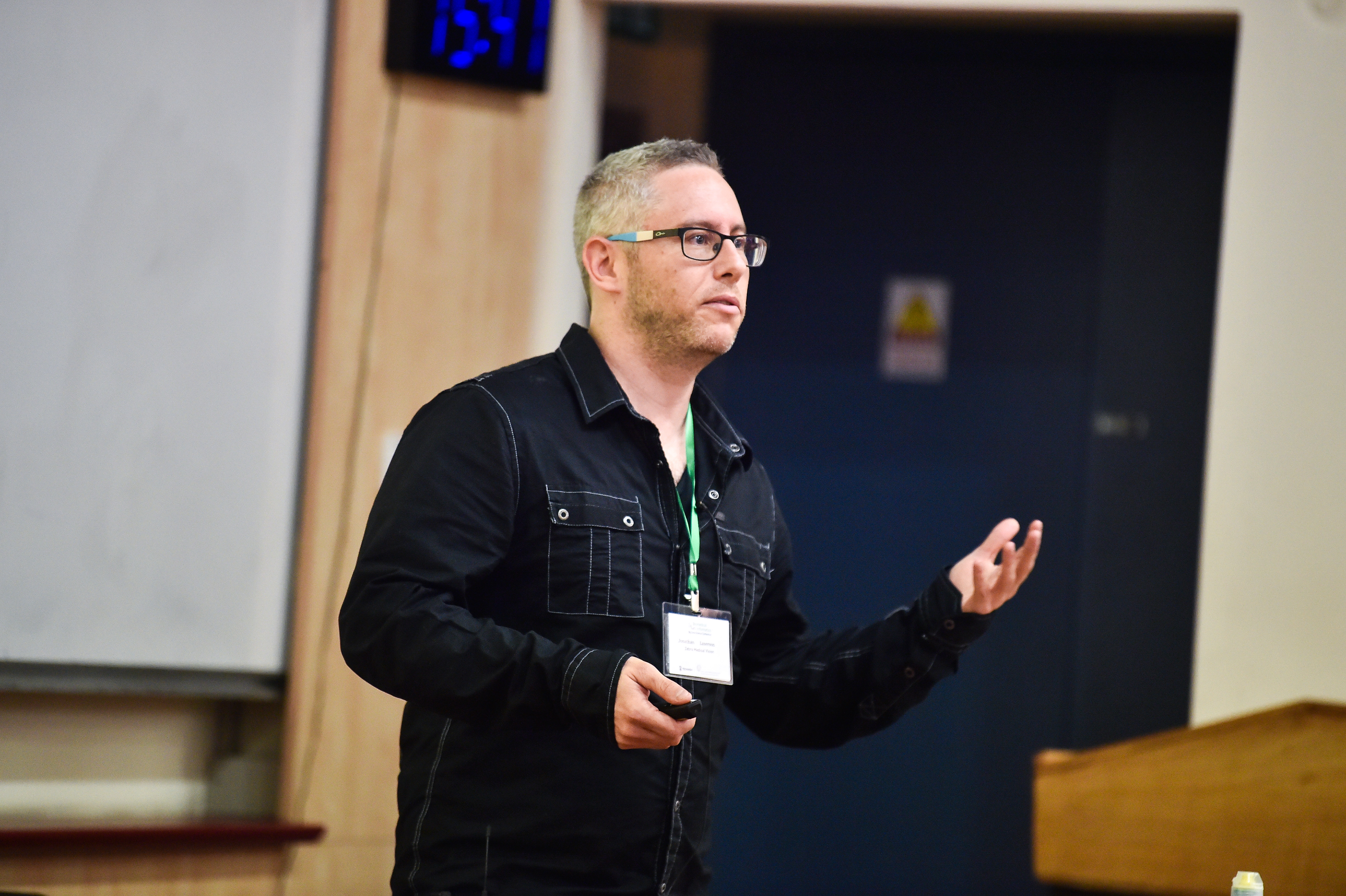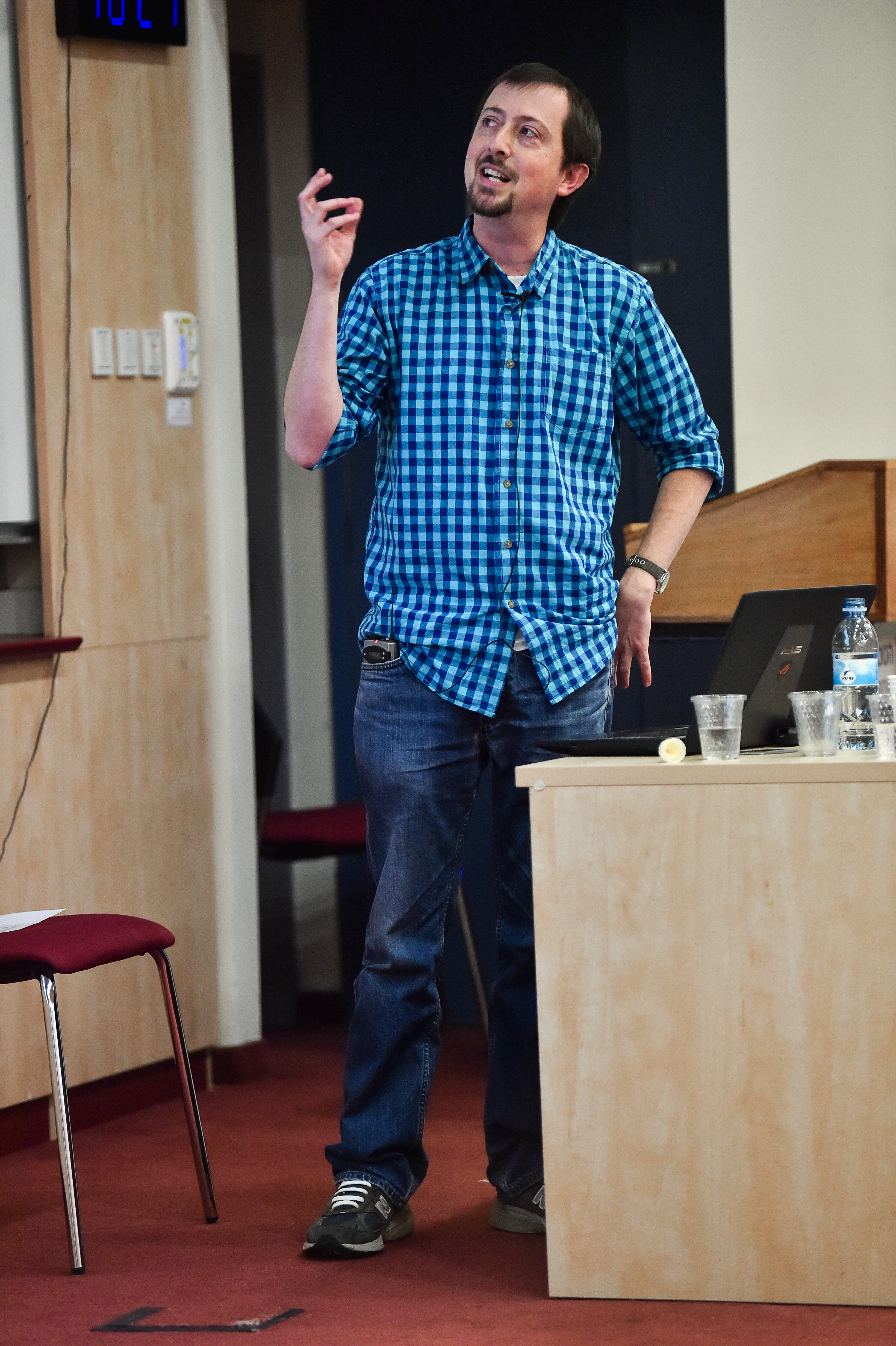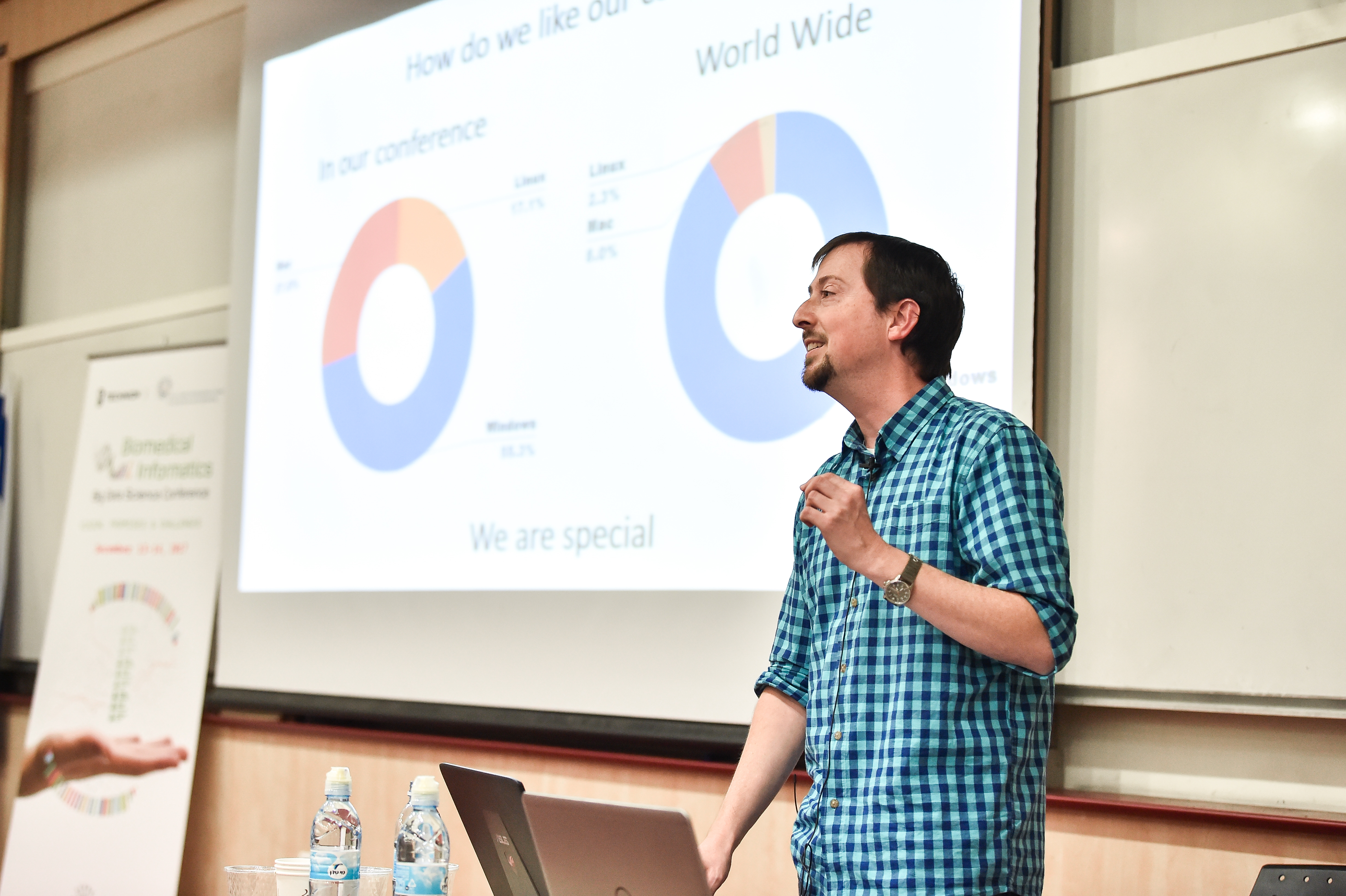Vision, Promises and Challenges
Applying deep learning to medical data makes it possible to address a large variety of biomedical issues in a much more efficient and inexpensive manner
1st International Conference on Biomedical Informatics
For two days in December, researchers and students converged on the Technion to hear from the world’s foremost experts on one of the most dynamic and groundbreaking fields today: using deep learning and big data to improve healthcare
The “Biomedical Informatics – Big Data Science – Vision, Promises and Challenges” Conference recently hosted by the Technion drew a large audience eager to hear about the latest developments in this fascinating field, which is increasingly becoming the focus of research in the academic, public and private sectors worldwide. Applying deep learning to medical data makes it possible to address a large variety of biomedical issues in a much more efficient and inexpensive manner. The conference was brilliantly organized by Dr. Kira Radinsky and Prof. Roy Kishony, whose unique synergy resulted in a precise mix of speakers who covered a wide range of topics – from practical applications of data science in medical care to ethical precision medicine and next generation healthcare. In the course of two days, 24 eminent speakers from around the world shared their latest research findings with the international audience.
Technion President Prof. Peretz Lavie emphasized the significance of the conference’s venue: “We’re living in a fascinating era for scientific research, an era where extensive data is used to improve diagnoses and treatment. There is no doubt that Israel in general, and the Technion in particular, is an excellent location for such a pioneering conference, since the Technion is one of the only technological institutions in the world that comprises a Medical School.”
The conference kicked off with a captivating keynote lecture by Jonathan Adiri, a serial entrepreneur and former Chief Technology Adviser to President Shimon Peres. His most recent start-up designed a smartphone app that makes it possible to perform simple medical tests from home. Adiri’s lecture, “The Era of Permanent Revolution,” provided a brilliant overview on the pace of technological change in recent years from a global perspective. He contended that the ‘big story’ is not only that processing capacity is growing exponentially, but that at the same time costs are plummeting – and these parallel trends together account for the current ‘tech tsunami.’
Lectures by Technion professors
Many interesting lectures at the conference were delivered by Technion professors. Prof. Kira Radinsky, the highly-esteemed Technion prodigy who is now a Visiting Professor at the Technion as well as chief scientist of eBay Israel, gave a riveting talk about predicting the future of medicine using data science. She explained how the system she developed is capable of predicting cholera epidemics with 92% accuracy, among other things. Her prediction system is based on an algorithm that identifies patterns culled from large amounts of Internet query logs. Prof. Roy Kishony, who is the Director of the L lectured about the evolution of antibiotic resistance and new ways to combine drugs that can slow down or even reverse this evolution. He explained how recent studies will hopefully enable genome-based diagnostics that will guide more resilient patient-specific multi-drug treatments. Prof. Shai Shen-Orr of the Technion’s Faculty of Medicine addressed the ongoing efforts to build a cell-centered view of genomic data that can be integrated with primary immunology literature. He focused on the subject of leveraging public data to improve the translation from mice modeling to humans. According to Prof. Shen-Orr, variability is key to understanding complex systems and a new paradigm is needed for studying data, and combining data and knowledge in a cell-centered framework.Prof. Ze’ev Ronai of the Technion’s Rappaport Faculty of Medicine, lectured about the important role of gut microbiome in the context of immune system interactions in the development of melanoma tumors. He described his research on the RNF5 protein in mice, and the discovery that it affects their gut microbiome as well as the inhibition of tumors. Prof. Ronai, who is the head of the Technion Integrated Cancer Center, has conducted a number of groundbreaking studies related to tumor growth. His group also recently revealed the critical role of the Sharpin protein in controlling the PRMT5 enzyme, which is an important factor in the development of cancer tumors. The new discovery, which confirms the role of Sharpin in controlling PRMT5, makes it possible to identify cancer patients for whom inhibiting PRMT5 is expected to be a more efficient therapy.
Experts from around the world
The conference also featured distinguished researchers from around the world. Dr. Nigam Shah, an Associate Professor of Medicine at Stanford University, described the initiative he leads, which takes data from electronic health records and uses machine learning to help doctors answer clinical questions, generate insights and make predictions. Dr. Hannah Bayer, who is a neuroscientist from New York University, spoke about the HUMAN Project, of which she is Chief Scientist. This project studies 10,000 New York City residents over a period of 20 years, tracking everything from financial and social data to environmental and health factors, mainly using a phone app that gathers the data passively. Dr. Søren Brunak, a medical informatics expert from the University of Copenhagen, Denmark, lectured about disease trajectories from population-wide data in the context of underdiagnosed diseases. John Wilbanks— Chief Commons Officer at Sage Bionetworks opened the second day of the conference – he presented ecosystem focused on putting the participant at the center of the data collection: specifically by acknowledging possible risks to both individual participants as well as sub-populations of participants, providing opt-in settings for broad data sharing, and the development of an open research ecosystem built upon a social contract between researchers and research participants. Dr. Ran Balicer, Director of the Clalit Research Institute, spoke about the future challenges in medicine from the point of view of the service provider. “We have had several successes in predicting diseases and adapting treatment to specific patients, and we do everything in order to improve our use of technology for the patient’s benefit,” he revealed. Dr. Varda Shalev, Director of Maccabi Health Care Services’ Institute for Research and Innovation, lectured about how Maccabi is expending a great deal of effort in using innovative technology to analyze data in the most effective ways. She cited as an example Maccabi’s cooperation with conference organizer Prof. Kishony, analyzing urine tests carried out all over Israel.


